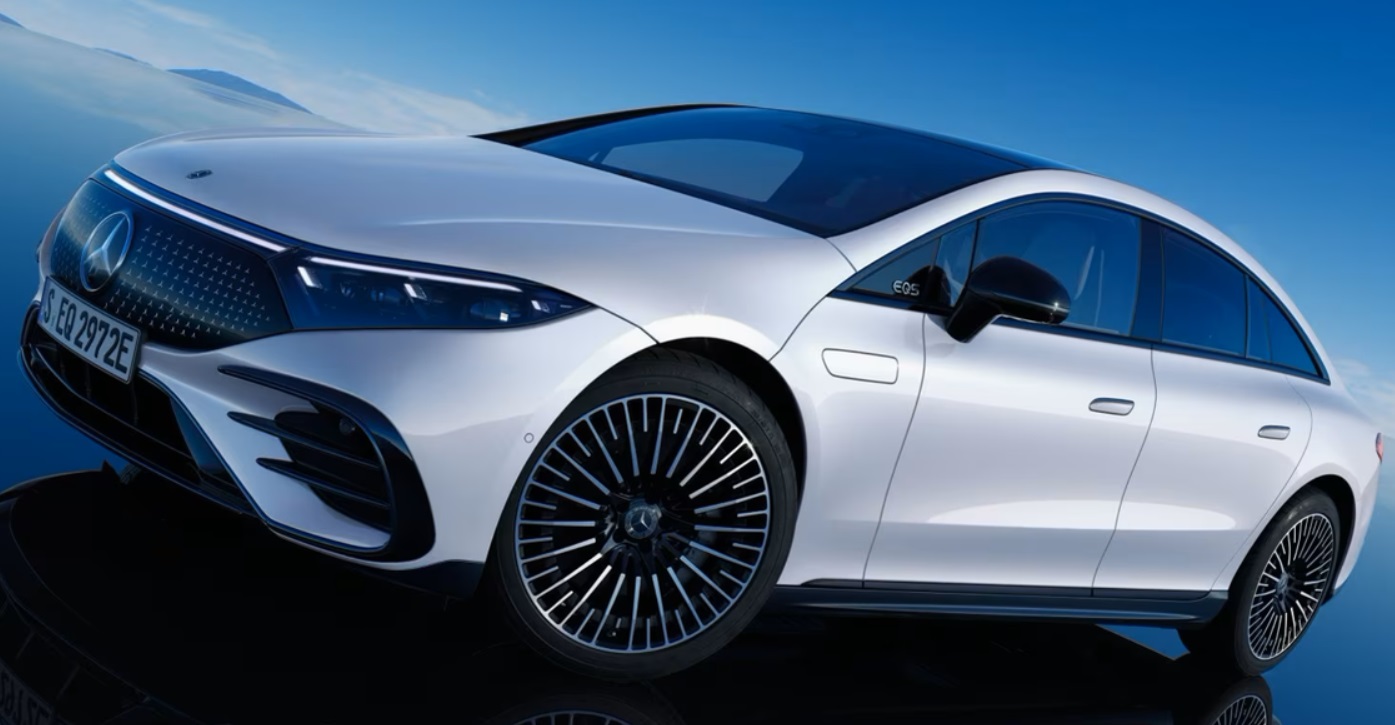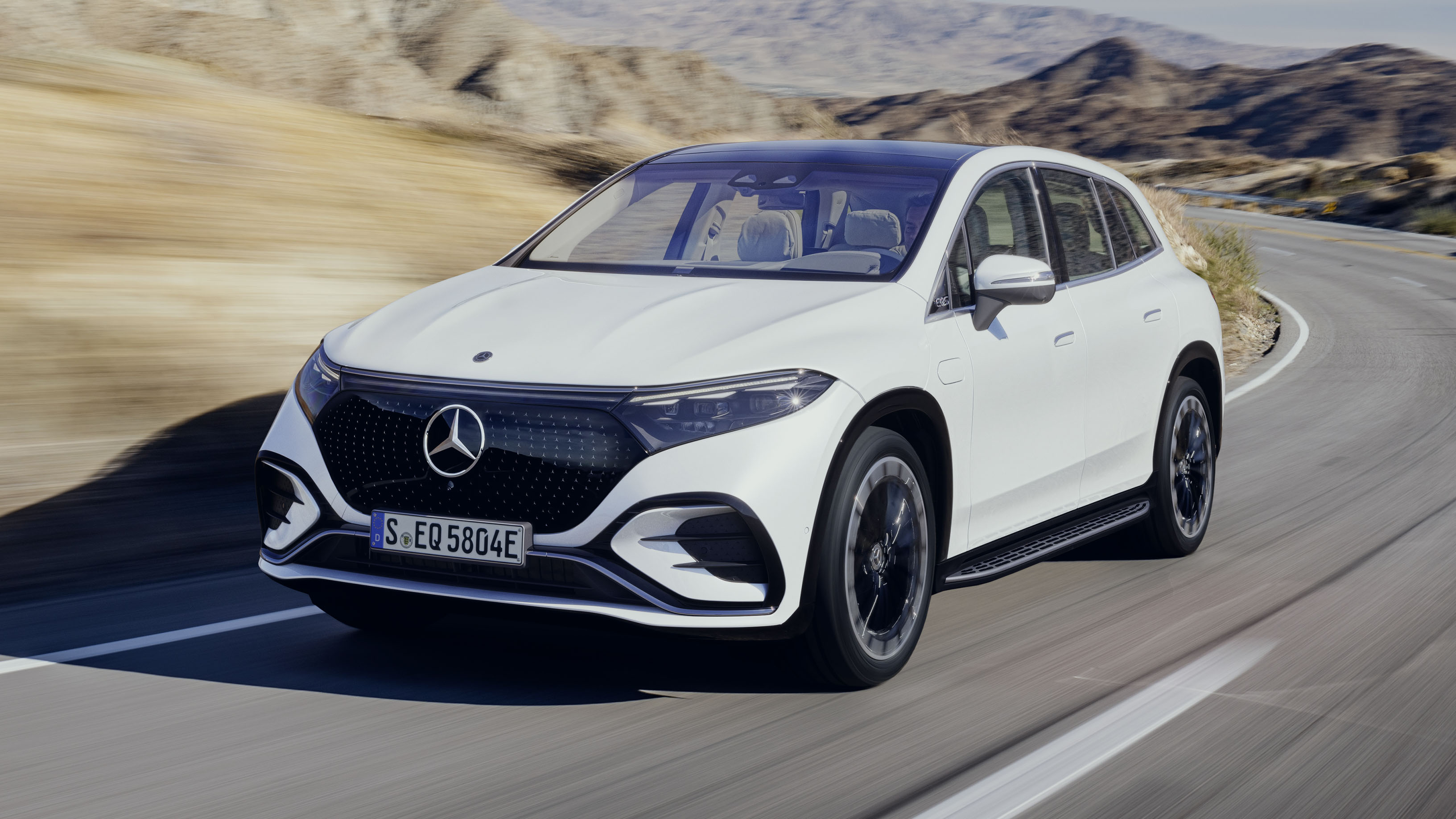The Silent Star: A Deep Dive into Mercedes-Benz’s Electric Revolution
Mercedes-Benz, a name synonymous with luxury, performance, and engineering excellence, is undergoing a profound transformation. The Stuttgart-based automaker, historically wedded to the internal combustion engine, is aggressively embracing electrification, pushing forward with its “Ambition 2039” strategy to achieve a carbon-neutral new passenger car fleet. This article delves into the intricacies of Mercedes’ electric vehicle (EV) strategy, exploring its current lineup, technological advancements, and the challenges it faces in a rapidly evolving market.
Mercedes’ journey into electrification began with cautious steps, exploring hybrid technologies and limited-run electric models. However, the launch of the EQ brand marked a significant turning point, signaling a dedicated commitment to a fully electric future.

The EQ Brand: A New Era of Luxury
The EQ brand serves as the electric arm of Mercedes-Benz, encompassing a growing portfolio of battery-electric vehicles (BEVs). It embodies a distinct design language, prioritizing aerodynamic efficiency, seamless technology integration, and a luxurious driving experience.
The EQC: A Pioneering SUV
The EQC, Mercedes’ first mass-produced electric SUV, laid the groundwork for the brand’s electric ambitions. While facing initial criticism for its range and charging speed compared to rivals, it established the foundation for future EQ models.

The EQS: The Electric S-Class
The EQS, the flagship electric sedan, represents the pinnacle of Mercedes’ electric technology. It boasts a sleek, aerodynamic design, a revolutionary “Hyperscreen” dashboard, and a remarkable range, setting new standards for electric luxury.
The EQE: The Business-Class Electric Sedan
The EQE, positioned as the electric equivalent of the E-Class, offers a compelling blend of luxury, performance, and efficiency. It shares many of the technological advancements found in the EQS, making high-end electric driving more accessible.

The EQB: The Versatile Electric SUV
The EQB, a compact electric SUV, caters to families and those seeking practicality. It offers a spacious interior, optional seven-seat configuration, and a competitive range, making it a versatile option in the growing electric SUV segment.
The EQV: The Electric People Mover
The EQV, an electric version of the V-Class, provides a premium and spacious solution for transporting passengers and cargo. It caters to businesses and individuals seeking a comfortable and sustainable mobility option.
The EQA: The Entry Point
The EQA is Mercedes’ entry point into the electric world. A compact SUV with a focus on urban driving, it offers a more accessible price point while still retaining the brand’s premium feel.
Mercedes-Benz is investing heavily in research and development to push the boundaries of electric vehicle technology.
Battery Technology: The Heart of the EV
Mercedes is pursuing a multi-pronged approach to battery technology, focusing on improving energy density, charging speed, and sustainability. They are developing their own battery management systems and exploring solid-state battery technology for future applications.
Electric Drive Units: Power and Efficiency
Mercedes is developing its own electric drive units, aiming for optimal performance and efficiency. These units integrate the motor, transmission, and power electronics into a compact and lightweight package.
Charging Infrastructure: Expanding Accessibility
Mercedes is actively involved in expanding the charging infrastructure, partnering with charging network providers and developing its own charging solutions. They are also exploring innovative charging technologies, such as bidirectional charging and wireless charging.
The Hyperscreen: A Digital Cockpit Revolution
The Hyperscreen, a massive curved display spanning the entire dashboard, represents a significant leap forward in digital cockpit design. It provides a seamless and intuitive user experience, integrating navigation, entertainment, and vehicle controls.
MBUX: The Intelligent User Interface
The Mercedes-Benz User Experience (MBUX) system, powered by artificial intelligence, learns user preferences and provides personalized recommendations. It integrates voice control, touch screen, and gesture control for a seamless and intuitive interaction.
Advanced Driver-Assistance Systems (ADAS): Enhanced Safety
Mercedes is equipping its EVs with advanced driver-assistance systems, aiming for enhanced safety and convenience. These systems include adaptive cruise control, lane keeping assist, and automatic emergency braking.
Mercedes-Benz faces both challenges and opportunities in the transition to an electric future.
Competition: A Crowded Market
The electric vehicle market is becoming increasingly competitive, with established automakers and new entrants vying for market share. Mercedes needs to differentiate itself by offering compelling products and services.
Range Anxiety: Overcoming Consumer Concerns
Range anxiety remains a significant barrier to EV adoption. Mercedes needs to continue improving battery technology and expanding the charging infrastructure to address this concern.
Cost: Making Electric Vehicles Accessible
The high cost of electric vehicles remains a challenge. Mercedes needs to find ways to reduce production costs and make EVs more accessible to a wider range of consumers.
Supply Chain: Ensuring Sustainable Sourcing
The supply chain for electric vehicle components, particularly batteries, is complex and challenging. Mercedes needs to ensure sustainable and ethical sourcing of materials.
Software and Connectivity: The Digital Driving Experience
The electric vehicle is becoming a software-driven platform. Mercedes needs to excel in software development and connectivity to provide a seamless and engaging digital driving experience.
Sustainability: A Holistic Approach
Mercedes is committed to sustainability throughout its value chain, from raw material sourcing to end-of-life recycling. This commitment is crucial for building a truly sustainable electric future.
Mercedes-Benz is committed to a fully electric future, with plans to launch a range of new electric models and technologies.
The Modular Architecture (MMA): A New Platform for Compact EVs
Mercedes is developing a new modular architecture (MMA) specifically for compact electric vehicles. This platform will enable the development of a wide range of electric models with different body styles and configurations.
The MB.EA Platform: The Electric Backbone
The MB.EA platform is a dedicated electric platform for medium and large-sized passenger cars. It will provide the basis for future electric models, offering flexibility, scalability, and advanced technology.
The AMG.EA Platform: Electric Performance
AMG.EA is a dedicated electric platform for AMG performance vehicles. It will enable the development of high-performance electric models with exhilarating driving dynamics.
The VAN.EA Platform: Electric Vans
The VAN.EA platform is designed for electric vans, offering a range of solutions for commercial and private customers.
Solid-State Batteries: The Next Generation
Mercedes is actively researching solid-state battery technology, which promises higher energy density, faster charging times, and improved safety.
Autonomous Driving: The Future of Mobility
Mercedes is investing heavily in autonomous driving technology, aiming to develop self-driving vehicles that can enhance safety and convenience.
Mercedes-Benz is embracing the electric revolution with a clear vision and a comprehensive strategy. The company is investing heavily in technology, infrastructure, and sustainability to build a compelling portfolio of electric vehicles. While challenges remain, Mercedes’ commitment to innovation and its heritage of engineering excellence position it well for success in the electric era. The silent star is rising, and Mercedes-Benz is determined to lead the way towards a sustainable and electrifying future.



